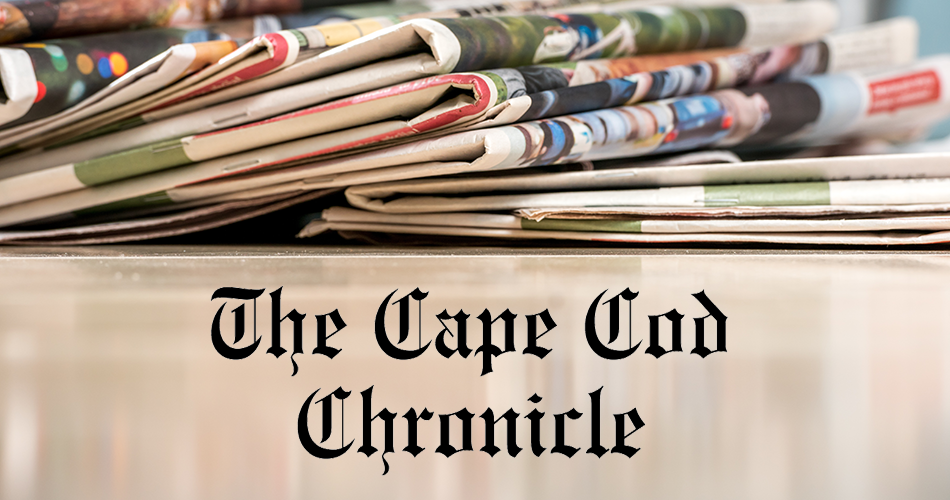 Speaker of the House Mike Johnson, R-La., seated, surrounded by Republican members of Congress, prepares to sign President Donald Trump’s signature bill of tax breaks and spending cuts at the Capitol in Washington on Thursday, July 3 Photo by Julia Demaree Nikhinson/AP
Speaker of the House Mike Johnson, R-La., seated, surrounded by Republican members of Congress, prepares to sign President Donald Trump’s signature bill of tax breaks and spending cuts at the Capitol in Washington on Thursday, July 3 Photo by Julia Demaree Nikhinson/APThe sweeping Republican tax and spending bill that cleared the U.S. House Thursday could cause about 45,000 people in Vermont to lose health insurance in the coming years, state officials say. The bill is now heading to President Donald Trump for a sign-off.
In order to pay for key parts of Trump’s domestic agenda included in the legislation, called the “One Big Beautiful Bill Act,” GOP budget-writers are counting on proposed cuts to Medicaid, the shared federal and state program that funds insurance for people with low incomes.
Meanwhile, the bill has sparked concern among hospital leaders in Vermont over a provision that would limit how much state governments can tax health care providers such as hospitals to, ultimately, access more federal Medicaid funding. Vermont, like most other states, relies on these taxes to fund expanded benefits for Medicaid recipients, which is a practice that helps support providers, too.
“The ‘Big Beautiful Bill’ is deeply concerning. I don’t think it’s beautiful, and I think it’s super harmful to Vermont,” said Mike Del Trecco, the president and CEO of the Vermont Association of Hospitals and Health Systems, in an interview earlier this week.
President Donald Trump and his GOP allies in Congress have said the legislation would target waste, fraud and abuse in Medicaid funding and have pointed to how the cuts would pay for policies such as breaks on taxes for tips and overtime pay. However, critics point to a Congressional Budget Office analysis showing the bill would boost the incomes of the country’s wealthiest households while costing the country’s poorest households more.
The legislation would result in about 12 million people across the country losing their health care coverage over the next decade across Medicaid and the commercial insurance marketplace, according to the Congressional Budget Office, which is a nonpartisan agency that scores the fiscal impacts of federal legislation.
One key provision in the bill would impose new requirements that certain people on Medicaid demonstrate that they are working in order to receive coverage. States will also be required to determine a participant’s eligibility for Medicaid every six months rather than every year, as they do now.
The fact that more people will have to fill out additional paperwork will lead some to fall off of coverage, according to Ashley Berliner, director of Medicaid policy for the state Agency of Human Services.
Berliner, in an interview, estimated that about 30,000 Vermonters will lose coverage because of that greater administrative burden. That makes up roughly half of the adults in Vermont who currently receive health insurance coverage under the expansion of Medicaid provided by the Affordable Care Act. That act, commonly called Obamacare, has significantly increased the number of people able to access health insurance.
Federal spending for those 30,000 people would equate to $205 million annually that would, as a result of the bill, no longer be coming into the state, Berliner said.
Meanwhile, she said, Vermont health officials believe an additional 15,000 people who purchase coverage on the commercial marketplace created by the Affordable Care Act will also lose coverage, at least in part because signing up for it will become more difficult. The budget bill doesn’t allow people to automatically reenroll in their current health care plan and shrinks the sign-up period for coverage by a month.
Historically, only about half of people respond to the agency when it requests additional information to verify people’s eligibility to be enrolled in Medicaid, Berliner said.
“When you ask people for additional information, they don’t fill it out and they fall off — the burden becomes too high and coverage is lost,” she said, adding that the picture is similar across the country, and GOP leaders are relying on the dropoff to help facilitate their proposed cuts.
Officials are also concerned about the impacts of a measure in the bill that would whittle down a long-standing mechanism states use to raise additional funds for Medicaid services by taxing health care providers. The rate of Vermont’s so-called provider tax, which is the name for that mechanism, would be reduced by 2.5% between 2028 and 2032. Vermont’s rate is currently set at the highest level allowed under existing law.
Cumulatively, over the period ending in 2032, Vermont is set to lose around $211 million from this change, counting both a loss of state dollars and additional federal Medicaid funding those dollars would allow the state to bring in, according to Berliner.
Hospitals will also feel pain from lost funding under these reductions, Del Trecco said.
Berliner added that she’s concerned by a measure in the bill that would ban state Medicaid payments for at least one year to health care nonprofits that offer abortions. This would include, notably, Planned Parenthood, which has clinics throughout Vermont.
One additional fallout, she said, could be shifting the costs of the reproductive healthcare those nonprofits provide in Vermont onto other providers.
All three members of Vermont’s congressional delegation have criticized the impacts of the budget bill and voted against it.
Last week, before the Senate approved a version of the bill, Sen. Bernie Sanders, I-Vt., released a report that his office said showed the bill would increase the number of uninsured people in every state in the country. In some states, the rate of uninsured people would nearly double.
The legislation would “devastate rural hospitals, community health centers and nursing homes throughout our country and cause a massive spike in uninsured rates in red states and blue states alike,” Sanders said in a press release last week.
Sen. Peter Welch, D-Vt., speaking on the Senate floor earlier this week, derided the potential impacts the bill would have on states with all political leanings.
“I want to repeat here: this is the bipartisan infliction of pain. This is real. This is real. And is the tax cut — largely directed to the very wealthy people — is it worth inflicting that kind of pain on so many, when the tax cut benefits so few?” he said.
Rep. Becca Balint, D-Vt., voted against the bill Thursday when it was up for final approval.
“This Republican budget is far and away the cruelest piece of legislation I’ve seen in my career,” she said in a statement Thursday afternoon. “It’s an utter moral failure.”









 English (US) ·
English (US) ·